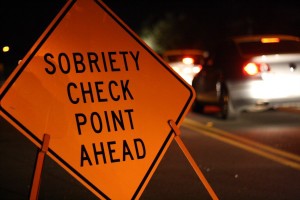In almost all situations, getting convicted of a DWI is a serious and troubling event. However, a DWI conviction becomes far more serious if the person registered a high BAC (Blood Alcohol Concentration) on a breath or blood sample. As such, what happens if you are convicted of DWI after blowing a 0.15 BAC or higher in Wilmington, NC?
North Carolina DWI
In North Carolina, DWI laws carry a harsher punishment for those individuals who are convicted with a high BAC. By statute, this means blowing a 0.15 BAC or higher. This is done not only to deter people from drinking heavily and driving, but also to add a harsher punishment to a DWI conviction that results from a high BAC.
Aggravating Factor Sentencing
The first way that a blow of 0.15 BAC or higher will affect you in a DWI conviction is in producing an aggravating factor during sentencing. In North Carolina, an individual who is convicted of a DWI is subject to six sentencing levels ranging from Level A1 (most severe) to Level 5 (least severe). To determine a sentence level, a judge looks for the existence of statute defined Grossly Aggravating Factors, Aggravating Factors, and / or Mitigating Factors. As such, a 0.15 BAC or higher is considered an aggravating factor. This aggravating factor will be weighed against you by the judge in determining your punishment.
 Limited Driving Privilege
Limited Driving Privilege
Generally, for individuals who are convicted at a sentence level ranging from Level 3-5, the individual may be eligible for a Limited Driving Privilege (LDP) for the license revocation that comes immediately after their conviction. A LDP allows the individual to drive for certain purposes like: work, school, and / or household functions. However, if an individual blows a 0.15 BAC or higher, they will not be eligible to apply for a Limited Driving Privilege until 45 days after their conviction date.
Ignition Interlock Device
Additionally, individuals who are convicted of DWI and who blow 0.15 BAC or higher must have an Ignition Interlock Device installed on their vehicles for a period of one year. An Ignition Interlock Device is a device that is attached to the ignition of a car and prevents the car from starting until the driver blows into the device and registers an acceptable BAC. This Ignition Interlock Device will need to be installed either during the LDP period or, if the individual chooses not to get an LDP or cannot get an LDP granted, during the period prescribed in accordance with their license revocation period.
 Treatment
Treatment
Finally, after a DWI conviction, an individual is required to obtain a mental health assessment and any treatment recommended by that assessment. Typically, this means enrolling in Alcohol Drug Education Traffic School (ADETS) for a lower level DWI. However, after a conviction with a 0.15 BAC or higher, a higher level of treatment beyond ADETS is mandated.
Contact Us
If you have been charged with impaired driving and registered a 0.15 BAC or higher on the on a breath or blood sample, Contact Us immediately at Minick Law, P.C. in Wilmington, NC, to discuss your case.
Related entries from our Blog:
- Are the Results of A Breathalyzer Admissible In Court In North Carolina?
- Driving While Impaired Frequently Asked Questions
- What are the Ramifications of Refusing a Chemical Analysis in NC?
- Where Can I Find An Ignition Interlock Provider in the Wilmington, NC Area?
- What Factors Make Up Reasonable Suspicion For A Stop?




























